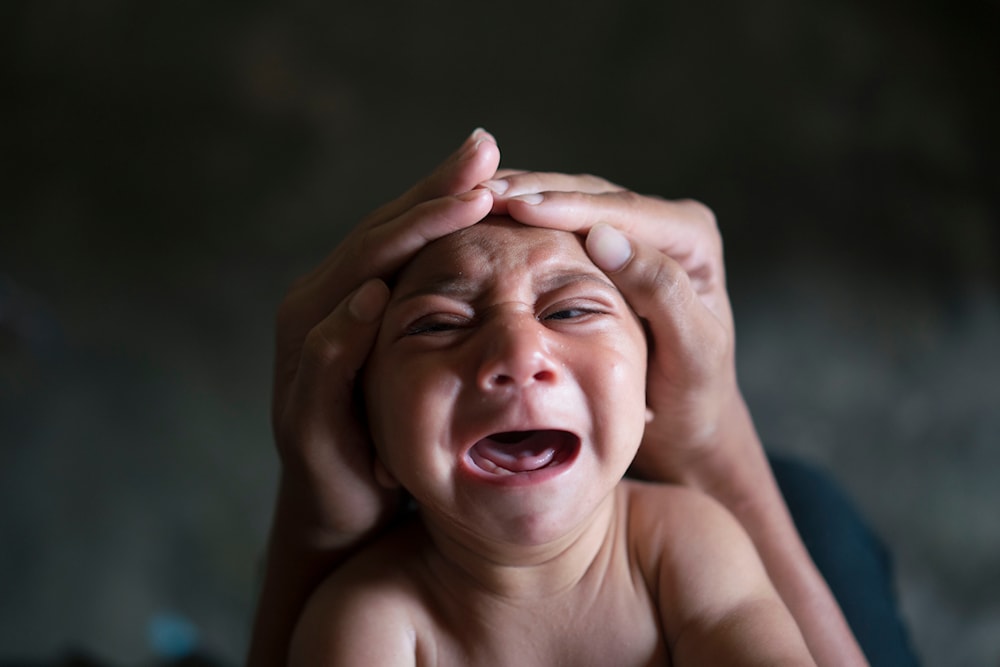Experts fear Oropouche virus outbreak in Brazil may spread further out
Experts have cautioned that genetic alterations in Oropouche itself might also be involved.
-

Elielson tries to calm down his baby brother Jose Wesley, a baby with microcephaly Bonito, Pernambuco state, Brazil on Jan. 30, 2016. (AP)
The Oropouche virus, a poorly understood illness carried by midges and mosquitoes, has been connected to the deaths of two young women, miscarriages, and birth abnormalities in Brazil.
There has been a significant increase in instances reported in the nation this year—7,284—compared to 832 in 2023. Numerous cases have been reported in regions where the virus has never been detected before.
By the end of July, 8,078 cases had been confirmed in Brazil, Bolivia, Peru, Colombia, and Cuba, and physicians in the area were advised to exercise caution.
Experts cautioned that genetic alterations in Oropouche itself might also be involved and that the climate situation is probably pushing the insects that disperse the virus to new locations.
Brazil's Health Ministry declared on July 25 that two women in the state of Bahia, ages 21 and 24, had died—the first documented deaths in recorded history anywhere in the globe. Each of them experienced abrupt symptoms, such as fever, headaches, and bodily aches, which eventually resulted in lethal bleeding. A 57-year-old man's possible third connected death is being looked into.
Márcia São Pedro, epidemiological surveillance director for Bahia, stated, “This is related, I believe, to the fact that people assume everything is dengue. And because dengue is well known, they hydrate and send the patient home. We need to understand that this is not the case. We are in a different situation now.”
Read next: Health authorities designate Gaza Strip polio epidemic zone
Officials said in June that a pregnant lady lost her baby at 30 weeks of pregnancy, and tests from the organs and umbilical cord showed evidence of the Oropouche virus. An eight-week gestation miscarriage was also connected to the infection.
Antibodies to the Oropouche virus were detected in testing on four newborns who had microcephaly, a disease in which the baby's head is smaller than usual. However, these tests do not conclusively link the virus to the birth defects.
Deaths and miscarriages are "things we don't really associate with this virus," according to Alain Kohl, a virology professor at Liverpool School of Tropical Medicine (LSTM) and specialist in bunyaviruses like Oropouche. He emphasized that there were still many unsolved concerns and that this was just the "early days" of the outbreak.
A 'neglected disease' in research
Felipe Naveca, from the Oswaldo Cruz Foundation, a health research institution linked to Brazil’s Ministry of Health and the co-author of research that found genetic changes in the form of Oropouche, “It has caused outbreaks before, but nothing on the scale of what is happening now.”
However, according to Naveca, serious consequences like death and miscarriage did not always indicate a change in the virus' potency; instead, they might only indicate that "when you have a very high number of cases, some severe cases will inevitably emerge."
He stated that more testing and surveillance may be partially to blame for the rise in numbers and that deforestation and climate change were increasing the likelihood of human-virus-carrying insects coming into contact with people.
Primate and sloth populations are known to harbor the virus, which can infect humans when specific midges and mosquitoes bite them.
The virus that "has the potential to emerge as a substantial threat" is Oropouche, according to a review that was published in The Lancet in January. The assessment also highlighted the substantial gaps in medical and scientific understanding of Oropouche and called it a "prototypical neglected disease."
First identified in Trinidad and Tobago in 1955, Oropouche typically causes flu-like symptoms that continue for around a week. The virus may result in serious side effects including meningitis.
Although the connection between miscarriage and microcephaly has not been shown, Prof. Jonathan Ball, deputy director of LSTM, stated that the virus' ability to migrate to new regions may be.
“Frequent exposure to the virus in endemic areas is likely to generate immunity before females reach child-bearing age, and this immunity would likely protect pregnant women and their unborn baby. However, when the virus is newly introduced this protection isn’t there,” he added.
The Pan American Health Organization recommended that individuals concentrate on prevention since there is no known vaccination or therapy for Oropouche. This entails donning arm and leg coverings, applying icaridin, IR3535, or Deet-containing insect repellents, and installing fine-mesh mosquito nets over windows, doors, and beds. Since midges are smaller than mosquitoes, they cannot be protected from bites by conventional mosquito nets.
University of Oxford's Prof. Sir Andrew Pollard stated the outbreak should be “a wake-up call” and stressed, “If climate continues to change, we should expect spread of the insects which can transmit diseases to humans to increase.”

 5 Min Read
5 Min Read








